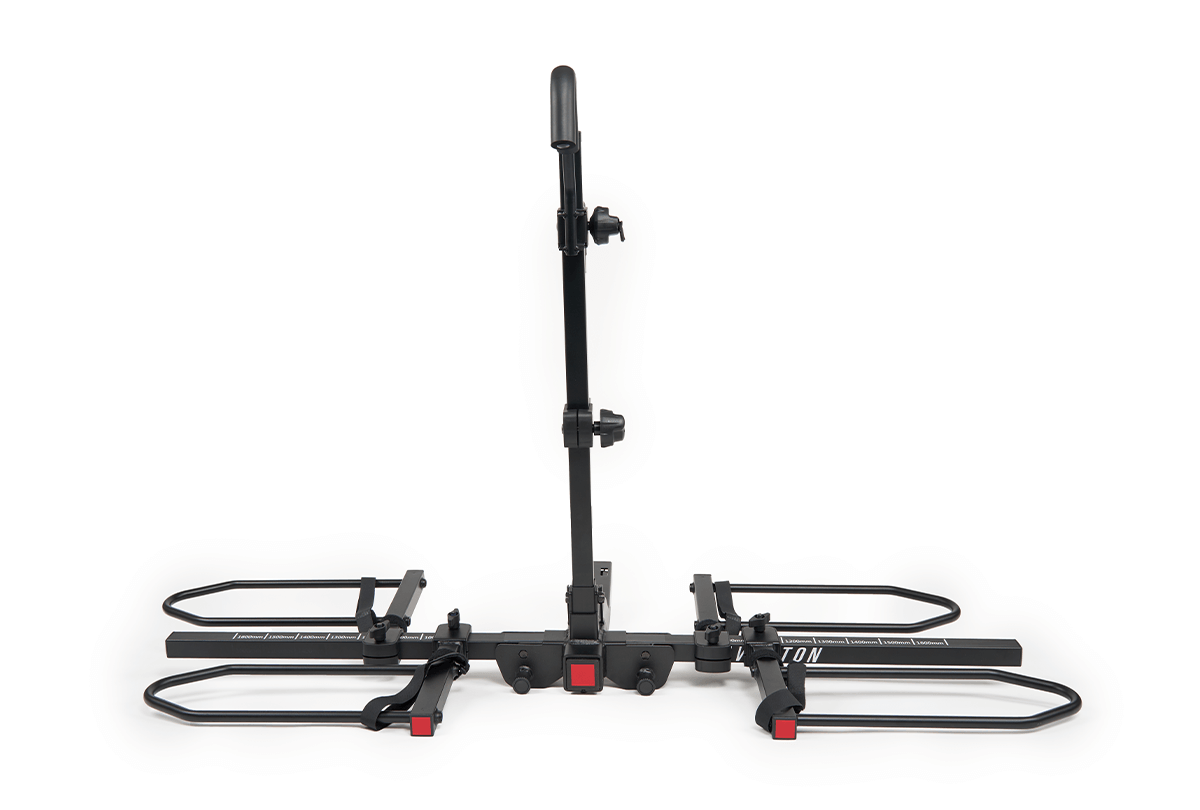Outdoor enthusiasts know that the best adventures often require the best gear. Whether it’s hiking, biking, kayaking, or camping, transporting your gear safely and efficiently is an essential part of every journey. A hitch rack offers a versatile, practical, and often space-saving solution for carrying your outdoor equipment. In this guide, we’ll explore the top hitch rack options, the benefits they offer, and how to choose the right one for your needs.
What is a Hitch Rack
A hitch rack is a specialized car rack that attaches to the hitch receiver of a vehicle, usually located at the back. Designed to carry various types of outdoor gear—like bikes, kayaks, skis, or camping equipment—these racks offer a sturdy platform for transporting bulky items that might otherwise not fit inside your vehicle. By leveraging the vehicle’s hitch, these racks provide an easy and safe way to haul your gear without compromising interior space.
Types of Hitch Racks
Bike Hitch Racks
Bike racks are among the most common hitch racks. They come in various configurations such as platform-style racks, hanging racks, and tilt-back racks. They are designed to safely transport bicycles, minimizing the risk of damage during transport.
Kayak Hitch Racks
These are specialized racks that allow kayaks to be transported on the back of your vehicle. They typically come in two types: saddle-style (which cradles the kayak) and stacker-style (which allows stacking multiple kayaks).
Ski and Snowboard Hitch Racks
Ski and snowboard racks are designed to hold your winter gear, keeping it secure while freeing up space inside your vehicle. These racks often feature padding and a sturdy design to protect the gear.
Multi-Sport Hitch Racks
As the name suggests, these racks are versatile and designed to carry multiple types of outdoor gear. They can accommodate bikes, skis, snowboards, kayaks, and even cargo. Some of these racks are adjustable, making them highly flexible for different activities.
Cargo Hitch Racks
Cargo racks are ideal for hauling bulky items like camping equipment, coolers, or even luggage. These racks can come in various shapes and sizes and often feature baskets, platforms, or enclosed boxes to secure gear during transport.
Advantages of Hitch Racks for Outdoor Gear
Enhanced Capacity
One of the biggest advantages of a hitch rack is the increased capacity it provides. Unlike a traditional roof rack that can be limited in terms of height and load distribution, a hitch rack allows you to carry larger and heavier loads. This makes it perfect for transporting multiple bikes, kayaks, or large camping gear without sacrificing interior space.
Easy Loading and Unloading
When compared to roof racks, hitch racks make loading and unloading your gear significantly easier. With a roof rack, you have to lift heavy items overhead, which can be physically demanding, especially if you’re carrying a bulky or heavy kayak or bike. Hitch racks, on the other hand, keep the gear lower to the ground, making loading and unloading far more manageable.
Better Security and Stability
Hitch racks tend to be more stable than roof racks or trunk-mounted alternatives. Once securely fastened to the hitch, they minimize the risk of wobbling or shifting while driving. This stability ensures that your gear stays safe during long trips, even on rough terrain. Additionally, most hitch racks come with locking mechanisms that help prevent theft.
Fuel Efficiency
While transporting gear on the roof can increase drag and reduce fuel efficiency, hitch racks tend to have a more streamlined profile. They generally don’t create as much aerodynamic drag as roof racks, meaning your vehicle will likely use less fuel during travel.
Easier Access to Trunk or Tailgate
Many hitch racks feature a tilting or swinging design, which allows you to open your vehicle’s trunk or tailgate while the rack is loaded. This can be a game-changer if you need to access your vehicle while on the go, whether to grab a jacket, food, or other essential gear.
Popular Hitch Rack Options
Thule T2 Pro XT 2 Bike Hitch Rack
Thule is one of the leading brands when it comes to outdoor gear transportation, and their T2 Pro XT is a top-tier bike hitch rack. This platform-style rack is designed for easy loading and unloading, with a frame-free clamping system that holds bikes securely without contacting their frames. It can accommodate both standard and fat bikes and features an adjustable design to fit a variety of vehicle hitches.
Kuat NV 2.0 Bike Rack
Kuat’s NV 2.0 is a premium bike rack that combines durability, security, and design. This platform-style rack includes a ramp for easy loading of bikes, which is especially helpful for heavier models. It also comes with a fully integrated locking system to keep your bikes safe from theft. The NV 2.0 is versatile enough to carry standard, fat, and e-bikes.
Yakima HangOut 3-Bike Hitch Rack
For those looking for a more affordable solution, the Yakima HangOut 3-Bike Hitch Rack is a great choice. This hanging-style rack is designed for simple, efficient bike transport, holding up to three bikes. It offers a lightweight yet durable design, making it an excellent choice for casual cyclists or families who want to haul a few bikes at a time.
Malone Auto Racks MicroSport 2-Kayak Trailer
When it comes to transporting kayaks, the Malone Auto Racks MicroSport 2-Kayak Trailer is one of the best solutions available. This rack uses a trailer system to secure two kayaks while providing a stable platform for transport. It’s designed for heavier kayaks and features adjustable saddles and straps to ensure your kayaks stay in place during the journey.
Swagman XP 3-Bike Rack
The Swagman XP 3-Bike Rack is a solid choice for those who want a budget-friendly solution for carrying multiple bikes. It features a simple hanging design and is compatible with both 1.25″ and 2″ hitches. While not as high-end as some other options, it provides solid performance at an affordable price point.
How to Choose the Right Hitch Rack
When selecting the ideal hitch rack for your outdoor gear, several factors must be considered. Here are some key features to keep in mind when shopping for a hitch rack:
Vehicle Compatibility
Ensure the rack is compatible with your vehicle’s hitch. Most hitch racks are designed to fit either 1.25-inch or 2-inch hitch receivers. You’ll need to verify the size of your vehicle’s hitch before purchasing a rack. Additionally, check the maximum weight capacity of both the rack and your vehicle’s hitch to avoid overloading.
Gear Type
Different racks are designed for different types of outdoor gear. Make sure the rack is specifically designed to carry the type of gear you need, whether it’s bikes, kayaks, skis, or camping equipment. Some racks are multi-sport, while others are more specialized, so choose according to your primary needs.
Ease of Use
Look for a hitch rack that is easy to install and use. Tool-free installation is often a key feature, as is the ability to tilt or swing the rack for easy access to your vehicle’s trunk or tailgate. Additionally, consider how easy it is to load and unload your gear.
Security Features
Many hitch racks come with built-in security features, such as integrated locks for both the rack and the gear. If theft prevention is a concern, opt for a rack that includes secure locking mechanisms.
Storage and Portability
If you don’t need the rack on a daily basis, consider one that is easy to fold or detach for compact storage. Some hitch racks have foldable arms or quick-release mechanisms that make storage much easier when the rack isn’t in use.
Conclusion
Hitch racks offer a convenient and reliable way to transport outdoor gear, from bikes and kayaks to skis and cargo. With so many options available, it’s crucial to choose one that fits your specific needs, whether you’re looking for a sturdy.



